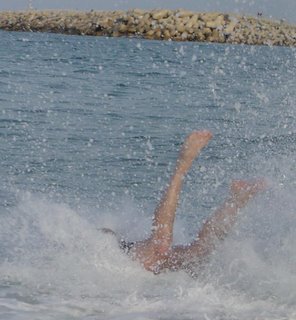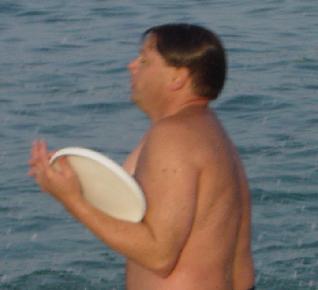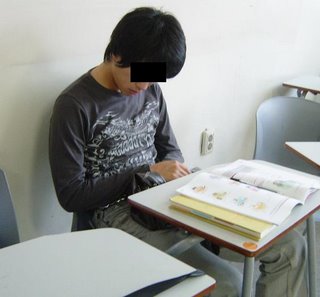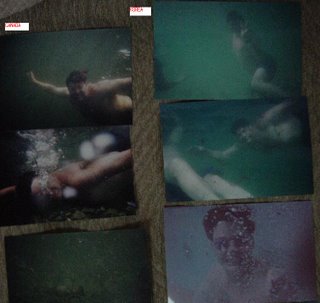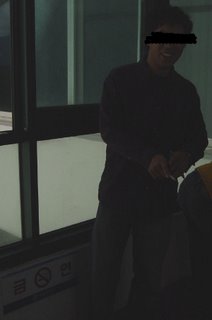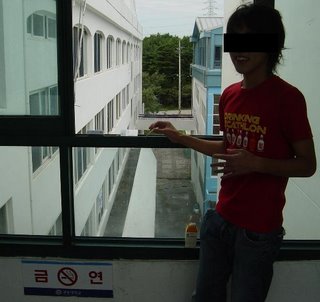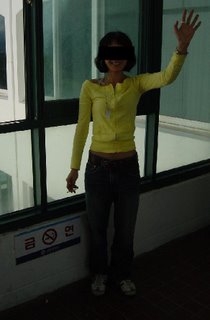This spring I
posted about Korea's low birthrate and it's decline in the size of it's workforce. I want to revisit this point today with a few other factors that may need to be considered.
In fact, I will be covering a lot of ground in this post and I hope I link my ideas together coherently (I feel under a lot of pressure to post SOMETHING soon; even my mother has commented on the lack of posts recently).
I read a remarkable and frightening book ten years ago called
Our Stolen Future by Theo Colborn. It was about the effects of hormone mimics and other manmade chemicals.
What are the effects of these chemicals? One is an disproportional response to stress. Under normal stress levels, people affected by these chemicals behave normally. If they experience a little more stress, they can have wide temper swings. Who does this sound like?
Racial slurs aside, there are other effects and I'll touch on them before mentioning the sources of these mimics. Reduced sperm count and an increase in problems with pregnancies are the main effects. You may draw the same connection I did to reduced birthrates.
Another effect I suspect can be linked to hormone mimics is the measured
decrease in penis size in polar bears.
Alright, here is the source. People who show the greatest effects had parents who ate a great deal of fish. Again, who does this sound like? Colborn's studies were based on Great Lakes fish but the results should transfer well.
Why are fish such a threat?
Biomagnification. From Wikipedia: "
Fat soluble (lipophilic) substances cannot be excreted in urine, a water-based medium, and so accumulate in fatty tissues of an organism if the organism lacks enzymes to degrade them. When eaten by another organism, fats are absorbed in the gut, carrying the substance, which then accumulates in the fats of the predator. Since at each level of the food chain there is a lot of energy loss, a predator must consume many prey, including all of their lipophilic substances."
Fish are a threat because they are carnivores. Cows only have a cowsized load of pollutants. When we look at rabbits for example; a fox can have, I don't know, a load of 10 rabbits of pollutants. If a larger animal eats several foxes (strange, I know but this is only an example), it would pick up all the pollutants all the fox's prey had. And fish are carnivores all the way up: we don't normally eat bears or tigers, but we do eat fish.
As Colborn wrote, the only way for a woman to decrease her load of these pollutants is by giving birth (and transferring it to the baby). There is another way and it's horrible: What do we give babies that has a high fat content? Breast milk.
As I stated at the beginning, this post is about the declining birthrate in Korea. I hope it is driven by more couples choosing to be DINKs (Double Income, No Kids) and not be the result of environmental poisons. If I've scared you, read Colborn's book.
On another, still-serious, but much lighter note, here are a few links that suggest a decreased birthrate is a good thing.
Dr Rose, on CBC's Quirks and Quarks (bottom of the page for his interview), discusses how the lifespan of insects can be prolonged by an order of magnitude and how these results could apply to humans, over a long period. A very funny line comes up when describing how to reduce wear and tear on our bodies. It went something like, "The insects had to follow Graduate School social rules: All the sex they wanted but no procreation."
Dr. Rose's work will not affect us much now but only after several generations.
Ray Kursweil (I think it should have a 'z' - maybe I mis-transcribed the name) suggests that our current generation may live forever. This
Popsci podcast is amusing but I think I heard from him on NPR's Science Friday as well.
If Dr Rose and Mr Kursweil are right, we need to seriously reduce our birthrate, probably even beyond Korea's current rate. With a tiny deathrate, even replacement procreation needs to be carefully debated.
_________
On a completely different topic. I've been thinking about Steve Irwin's death for the past few hours; since I first heard of it. I was never a
Crocodile Hunter fan and I am ambivalent about his work, but his death has caught my attention for some reason.
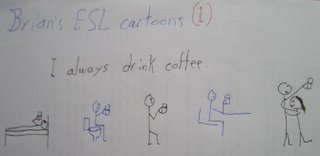


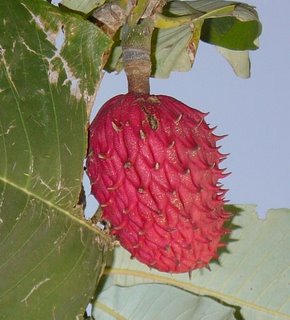




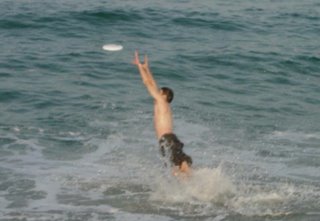
 Here are my legs after the surf tackled me.
Here are my legs after the surf tackled me.